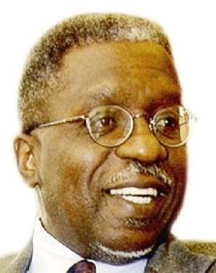(Trinidad Guardian) As the trade union movement prepares for a mass demonstration on Friday, Central Bank Governor Ewart Williams said yesterday that he does not expect the industrial unrest to continue into 2012. That’s because “unions lose their clout” when there are high levels of unemployment, said Williams. He was speaking at the Central Bank’s bi-annual Monetary Policy Report media conference on Wednesday.
Williams said unemployment rates were rising. “People tend to focus more on job security than wages,” he observed. The labour movement has called on all workers to participate in a mass demonstration through the streets of Port-of-Spain on Friday to protest the “three months of siege, under a repressive state of emergency.”

In August, Williams had said a general strike was “the worst possible thing” the T&T’s fragile economy faced. The last unemployment data available was for the last quarter of 2010 which pegged unemployment at 6.3 per cent. But the Governor observed that retrenchment notices for the third quarter of 2011 were twice as much compared with the corresponding period in 2010. For 2011, about 15,000 jobs were lost in construction. “We suspect with the State of Emergency, that retrenchment continued in the last quarter of 2011. We await new information on the unemployment rate,” he said.
The 106-day SoE and the curfew, he said, had a “more pronounced” impact on the economy than originally envisaged. Williams said the SoE impacted on hours worked which affected production of small businesses as well as the distribution sector. In addition, the economy also faced challenges with weak private sector confidence and declines in the oil and gas sectors. This, he explained, led to an overall negative impact on the country’s Gross Domestic Product for 2011 which is estimated at 1.4 per cent.
But the country’s fiscal deficit for 2010-2011 budget was about TT$5 billion compared to the budgeted TT$7 billion, the Governor said. Williams dismissed the suggestion that the economy’s forecast was gloomy. In 2012, the economy could recover. The onus, says the Governor, lies with the Government’s ability to implement the Budget which would generate jobs and revive the construction sector from the doldrums. “Fiscal policy should take the lead in the economy. It has not happened the way it should,” he said. If the Government exercises the right fiscal pressure, Williams reasoned the economy would move back to positive growth of 1.5 per cent with inflation being contained to five per cent and with no sharp reduction in unemployment.
The Housing Development Corporation (HDC)’s Colour Me Orange, said Williams, would likely add economic activity to the country. The “downside risks,” he said, come from the European and US economies and their impact on the region. Hesitant to discuss the debt crisis in the European markets given how quickly the situation was developing, Williams pointed out the decision signalled by S&P to downgrade 13 European countries is an indication of the state of the international economic environment. Williams pointed out the Brazil has already begun to feel the impact of the European crisis.
On the other hand, the US will be impacted by upcoming presidential elections which is likely to postpone effective policy action. “It’s uncertain at best,” he said. The Caribbean, he said, which is expected to grow by three per cent for 2011 due to resource-rich Guyanese and Suriname economies, could feel the impact on their tourist arrivals.
Already, the region faces a new levy for passengers which Williams observed could impact on passenger load into the region. This, coupled with high unemployment in the US and Europe would result in low remittances into the region, could negatively affect the region.
Insurance consolidation
“I would hope so,” answered Williams to the question of whether the Central Bank was policing insurance companies better after the collapse of Clico in 2009. Williams expects the Bank’s decision to raise the reserve limit held by insurance companies will result in consolidation within the industry. Williams pointed out that all it takes for an insurance company to start up was a reserve of $1 million in capital for life insurance and TT$3 million for general insurance.
“This has to change. The new legislation provides for a significant increase,” he said. He observed that under the archaic 1966 legislation, the Central Bank does not even have the authority to do on-site visits to companies. Even the Bank’s Guidelines on Governance are not binding to insurance companies under the law. For this reason, he said, the Bank is pushing for new legislation.
